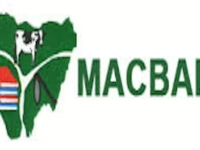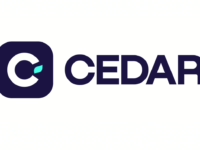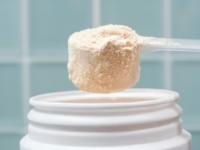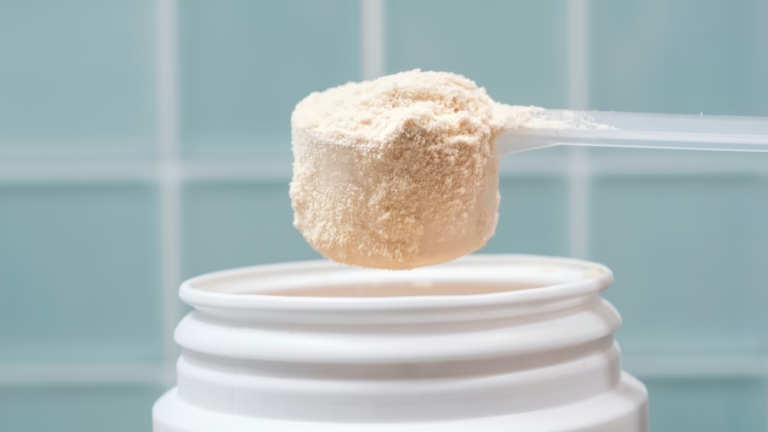Recent analysis reveals the presence of lead in widely used protein powders and shakes – experts recommend moderation rather than alarm.
Tatiana/Getty Images/iStockphoto
hide caption
toggle caption
Tatiana/Getty Images/iStockphoto
A thorough examination by Consumer Reports (CR) has uncovered what it describes as “alarming” concentrations of lead in about 24 popular protein powder brands. However, the organization advises consumers not to discard these products outright.
Over a three-month span starting in November, CR conducted tests on multiple samples from 23 different protein powders and ready-to-drink shakes, sourced from both physical stores and online platforms.
The findings, released this Tuesday, indicate that over two-thirds of these products contain lead amounts in a single serving that surpass the daily safe intake level recommended by CR’s experts.
“Certain products exhibited lead levels exceeding ten times what our specialists consider safe,” Consumer Reports journalist Paris Martineau shared with NPR on Wednesday.
Plant-based protein powders showed notably higher lead concentrations-averaging nine times more than dairy-based powders and double that of beef-derived protein powders, according to CR’s analysis.
“Whey and other dairy-based protein powders generally contained the lowest lead levels,” Martineau noted. “Still, half of the tested items had contamination levels high enough that experts advise against daily consumption.”
The Council for Responsible Nutrition (CRN), representing the dietary supplement industry, responded with caution regarding the study’s conclusions. They emphasized that advanced testing techniques can detect trace amounts of naturally occurring heavy metals, which does not inherently imply a health risk.
“Exceeding CR’s internal threshold is not equivalent to surpassing government safety limits, nor does it confirm any danger to consumers,” the trade group stated.
This report adds to an expanding collection of research highlighting heavy metal presence in everyday products, ranging from spices to personal care items. Earlier this year, the Clean Label Project evaluated 160 protein powders from 70 brands, finding that nearly half exceeded California’s Proposition 65 limits for toxic metals.
These revelations arrive amid a surge in protein supplement consumption across the U.S., as many incorporate these products into their daily nutrition routines.
Lead exposure has no established safe threshold and is commonly found in environments where food is cultivated and processed. Experts warn that the most significant health risks-such as kidney damage, reproductive issues, and cognitive decline-stem from prolonged exposure to high lead levels.
While CR discourages daily intake of protein shakes with elevated lead, it reassures that most tested products are safe for occasional use. Even those with the highest lead content remain “well below levels that would cause immediate harm,” Martineau explained.
“The primary concern is the cumulative effect of low-level lead exposure over time, which can accumulate in the body and potentially lead to health problems later,” Martineau added. “The best approach is to evaluate your protein supplements carefully and make informed choices rather than panic.”
Defining a Concerning Lead Level
Consumer Reports categorizes the 23 protein powders based on their “level of concern” for lead, set at 0.5 micrograms per day, aligned with California’s Proposition 65 maximum allowable dose.
Accordingly, CR identifies seven products as “better options for daily use,” twelve as “suitable for occasional consumption,” recommends limiting two powders to weekly use, and advises avoiding two others entirely.
The powders with the highest lead content include Naked Nutrition’s Mass Gainer, containing 7.7 micrograms per serving, and Huel’s Black Edition, with 6.3 micrograms per serving.
Huel, a UK-based producer of plant-based meal replacements, issued a detailed FAQ challenging CR’s findings. The company explains the natural origin of trace minerals like lead, outlines its testing procedures, and asserts compliance with international safety standards.
Huel criticizes CR’s reliance on Proposition 65, describing it as an “exceptionally stringent benchmark,” and maintains that scientific data supports the safety of their trace mineral levels for daily consumption.
Similarly, CRN questioned the validity and potential negative impact of CR’s “level of concern” metric, warning that without alignment to federal standards, such proprietary thresholds might exaggerate risks and cause undue worry.
However, CR highlights that no federal regulations currently limit heavy metal content in dietary supplements.
Regulatory Landscape for Protein Powders
Earlier this year, the Food and Drug Administration (FDA) issued “interim reference levels” for lead exposure: 2.2 micrograms per day for children and 8.8 micrograms per day for women of childbearing age. These serve as guidance for industry but are not legally binding limits.
Dietary supplements fall under a distinct regulatory framework separate from conventional foods and drugs. They are not pre-approved or ingredient-verified before market release, though the FDA can intervene if products are found to be adulterated or mislabeled.
Responsibility for contaminant testing lies with manufacturers, many of whom are members of CRN and adhere to voluntary testing protocols.
“When manufacturers comply with FDA guidelines, naturally occurring elements typically remain within safe boundaries,” CRN stated.
Consumer Reports urges the FDA to implement enforceable lead limits in foods and supplements to enhance consumer protection.
“Although the FDA can act against unsafe lead levels, the absence of mandatory standards means enforcement is infrequent,” said Brian Ronholm, CR’s food policy director. “Limited FDA resources exacerbate this issue.”
Practical Advice for Consumers
CR recommends steering clear of protein powders or shakes bearing California Proposition 65 warnings, which are marked by conspicuous all-caps “WARNING” labels and bright yellow triangles.
Consumers are encouraged to consult CR’s product rankings when selecting protein powders and to favor dairy-based options over plant-based ones when feasible.
Nutrition experts emphasize that protein needs can be met through whole foods such as Greek yogurt, nuts, beans, and meats, without relying heavily on supplements.
Moreover, nutritionists have noted that marketing and social media trends often lead people to overestimate their protein requirements. The USDA’s daily nutrient recommendation calculator offers a reliable starting point for personalized protein intake.





















